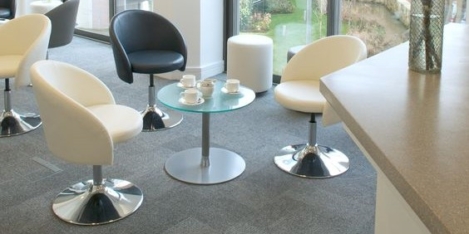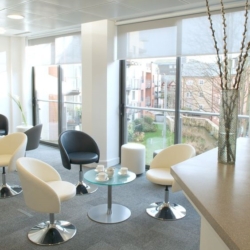To provide the best experiences, we use technologies like cookies to store and/or access device information. Consenting to these technologies will allow us to process data such as browsing behaviour or unique IDs on this site. Not consenting or withdrawing consent, may adversely affect certain features and functions.
The technical storage or access is strictly necessary for the legitimate purpose of enabling the use of a specific service explicitly requested by the subscriber or user, or for the sole purpose of carrying out the transmission of a communication over an electronic communications network.
The technical storage or access is necessary for the legitimate purpose of storing preferences that are not requested by the subscriber or user.
The technical storage or access that is used exclusively for statistical purposes.
The technical storage or access that is used exclusively for anonymous statistical purposes. Without a subpoena, voluntary compliance on the part of your Internet Service Provider, or additional records from a third party, information stored or retrieved for this purpose alone cannot usually be used to identify you.
The technical storage or access is required to create user profiles to send advertising, or to track the user on a website or across several websites for similar marketing purposes.
 A new survey from Office Space in Town (OSiT) claims that the overwhelming majority of workers are looking forward to a return to the office. However, most also want to avoid the commute, have more control over their times and places of work and want new working environments that help them work better. They also have concerns that the return should be managed with their health and safety the priority. (more…)
A new survey from Office Space in Town (OSiT) claims that the overwhelming majority of workers are looking forward to a return to the office. However, most also want to avoid the commute, have more control over their times and places of work and want new working environments that help them work better. They also have concerns that the return should be managed with their health and safety the priority. (more…)





 New research claims that more than three quarters of men who live alone feel isolated while they’re working from home and two fifths of 18-30 year olds feel their mental health has deteriorated. This latest research from The Institute of Leadership & Management
New research claims that more than three quarters of men who live alone feel isolated while they’re working from home and two fifths of 18-30 year olds feel their mental health has deteriorated. This latest research from The Institute of Leadership & Management 




 The easing of lockdown restrictions and a return to offices is raising the stress levels of over a quarter of UK tech professionals (26 percent) at a time when over 1 in 3 (36 percent) report that their mental health has deteriorated during Covid-19, according to a new
The easing of lockdown restrictions and a return to offices is raising the stress levels of over a quarter of UK tech professionals (26 percent) at a time when over 1 in 3 (36 percent) report that their mental health has deteriorated during Covid-19, according to a new 



















June 9, 2020
A thank you for the bitter knowledge offered by the lockdown
by Adam Burtt-Jones • Comment, Flexible working, Workplace design